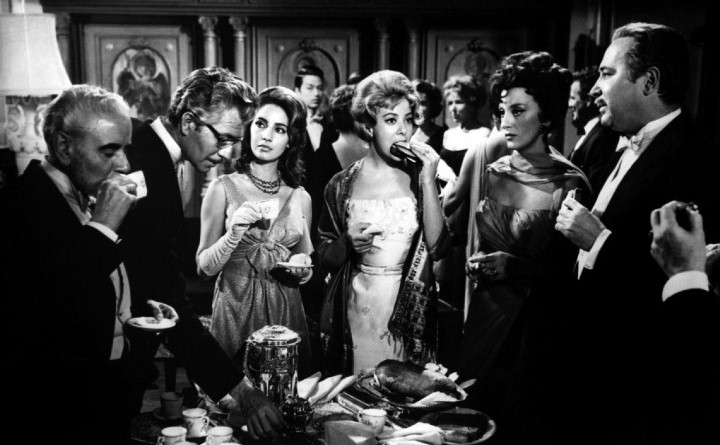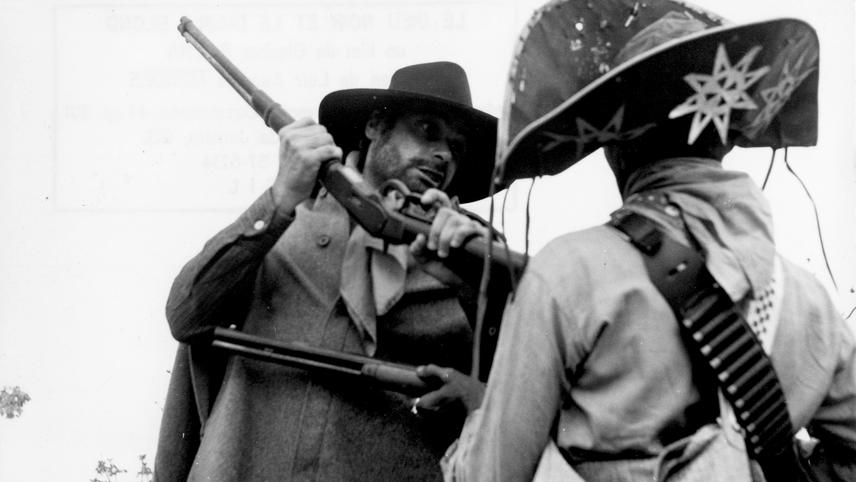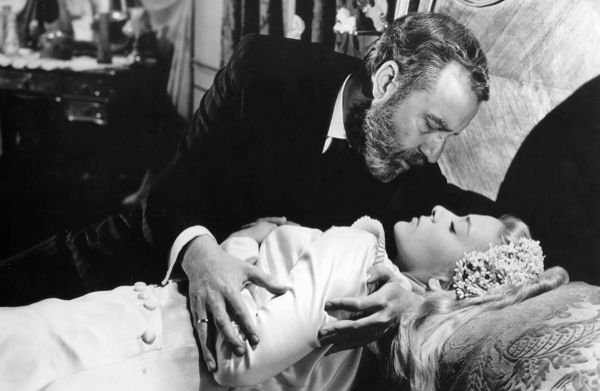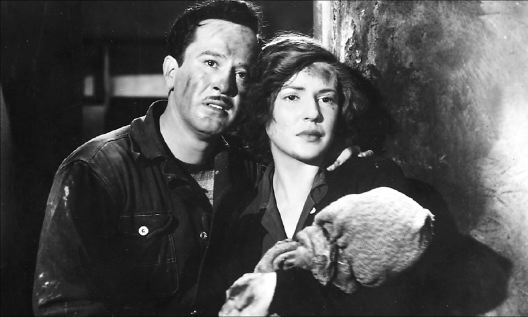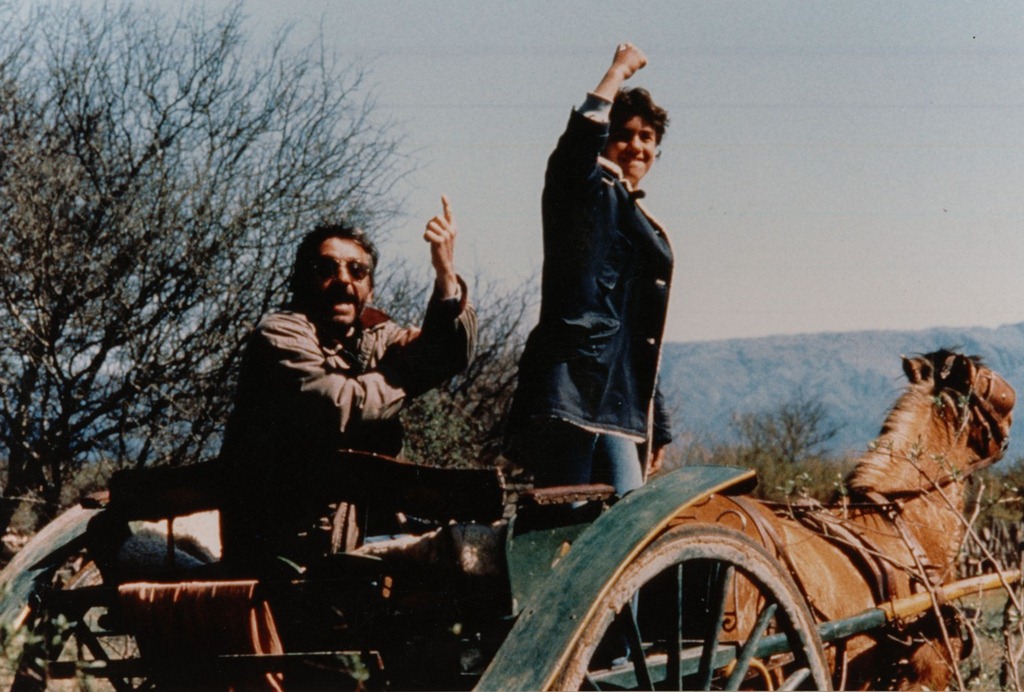20. The Exterminating Angel (México: El angel exterminador)
One of Buñuel’s best, The Exterminating Angel is about a group of guests in an upper class dinner that find themselves unable to leave, and slowly start to degrade into living like animals. The second (and second-best) of Buñuel’s films starring Silvia Pinal and produced by her husband Gustavo Alatriste, the film is not his only film about dinner parties, nor his most surreal, but it is a powerful statement and a pretty affecting view.
19. The Motorcycle Diaries (Argentina: Diarios de motocicleta)
Recounting the early days of the revolutionary Che Guevara, the film stars Gael García Bernal as Che as he takes a road trip around South America with his friend Alberto “Mial” Granado a year before he graduates. This trip ends up changing Che, and he discovers his life calling. The film won an Oscar for Best Original Song, and several prizes at Cannes, along with a multitude of other wards and recognition.
18. Pan’s Labyrinth (México:El laberinto del fauno)
Guillermo del Toro’s twisted fairy tale tells the story of Ofelia, a Young girl in Spain during the Franco Dictatorship that discovers a world around her beyond the violent and repressive life that she and her mother are living. It was nominated for 6 Oscars, but won only three of them, and lost Best Foreign Language Film to The Lives of Others. It is a superb film, beautifully filmed, with amazing music and great acting, and a thought provoking story.
17. Black God, White Devil (Brazil: Deus e o Diabona Terra do Sol)
The other great social critique by Glauber Rocha, the director of Entranced Earth, this film was the one that put him on the map and brought Latin America’s “Cinema Novo” to international prominence. In the film a ranch hand murders his boss and flees with his wife, and later joins a self-proclaimed saint with disturbing practices.
16. The Place Without Limits (México: El lugar sin límites)
Perhaps Arturo Ripstein’s best film, The Place Without Limits is set in a small town in the Mexican state of Queretaro. It is based on a novel by Juan Donoso, and tells the story of a transvestite and his daughter that own a brothel controlled by the local chieftain, and have to face his protégé that returns to the town. The greatest of Ripstein’s films to oppose the machismo inherent in Mexican culture, it has been considered one of the most important Mexican films ever made.
15. Nine Queens (Argentina: Nueve Reinas)
Nine Queens is a superb crime drama film directed by Fabian Belinsky, about two con artists who meet and decide to work together in a big scam. Although it ended up not being the pick as Argentina’s entry for the Foreign Language Film Oscar, it has become a classic and cultural mark in modern Argentine cinema.
14. Viridiana (México)
The only mexican Palm D’Or to date (Not counting the Grand Prix that was awarded to Maria Candelaria along with 11 other films in 1946), Viridiana is the story of a nun who just before making her final vows goes visit her uncle Jaime, who paid for her studies. Her uncle discovers that Viridiana looks a lot like his deceased wife. Maybe you can infer what goes next. One of the best Buñuel films from his Mexican era, Viridiana was prohibited in Spain for many years for its portrayal of catholic faith.
13. We the Poor (México: Nosotros los pobres)
Mexican director Ismael Rodríguez’s masterpiece portrays the poor and working class in México with an idealized lens. The film has become a staple of Mexican culture and one of the archetypical examples of Mexican cinema’s golden age, it furthermore served as a way to validate the people’s idol and Mexican legend Pedro Infante’s ability as an actor. He would eventually win the silver Bear of the Berlin festival for Tizoc, a film also made by Ismael Rodriguez.
12. A Place in the World (Argentina: Un lugar en el mundo)
A Place in the World is a 1992 Argentine film set in 1974, after the death of Argentina president Juan Domingo Perón, and is set in a remote Argentinian valley where voluntary exiles live with ther son in a small town. A geological engineer arrives in the valley trying to build a hydro electric plant. It was nominated for the Oscar for best Foreign Language Film but was disqualified because Uruguay was the country that entered it (part of the creative drive was from Uruguay).
11. Love’s a Bitch (México: Amores Perros)
The change in millennium signified a new era for Mexican cinema, that had laid dormant for several years, and Amores Perros was one of the films that made this New Mexican Cinema Possible (The other two are further up). It tells several stories that connect to each other through a car accident. The film has been called “The Mexican Pulp Fiction”. It won the Critic’s Week Prize at Cannes and was nominated for the Best Foreign Language Film Oscar.
